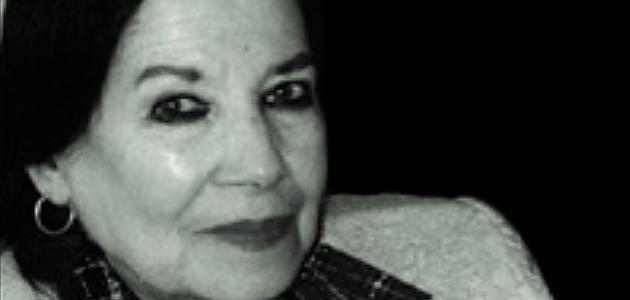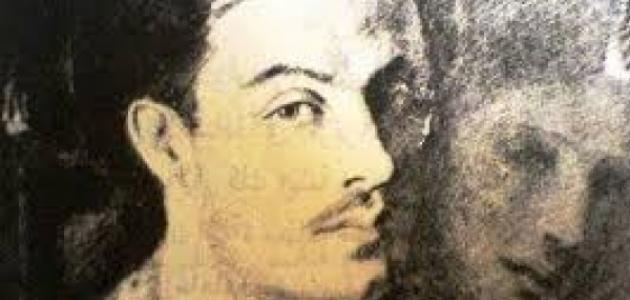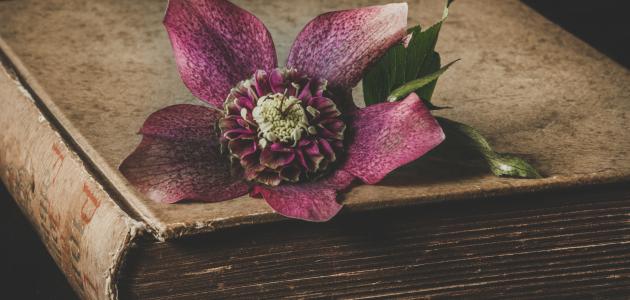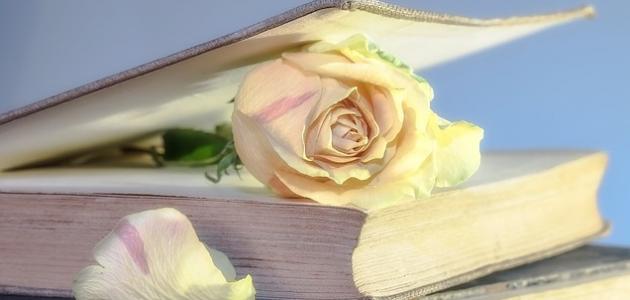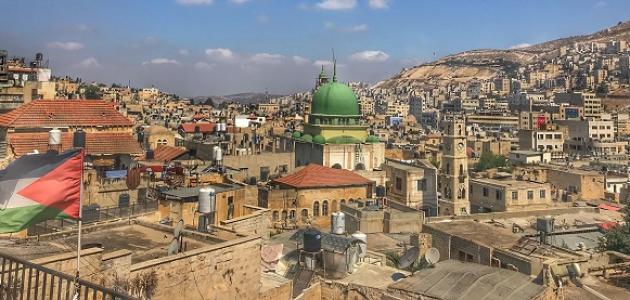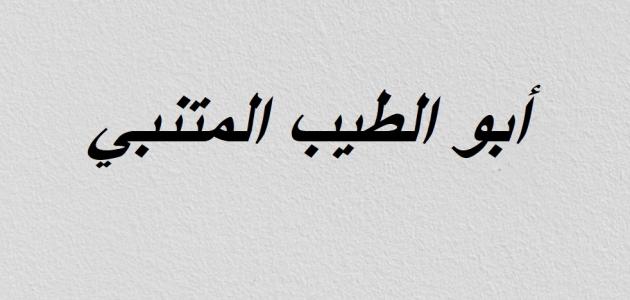Fadwa Toukan
Fadwa Touqan is a poet and writer from the Palestinian city of Nablus. She composed many poems in which she sang about her homeland, Palestine, which made her one of the most prominent Palestinian poets in the twentieth century. She wrote about herself and her repressed feelings of injustice, so she wrote about her dreams, pains, and hopes for her freedom, and her true personality appeared, which remained imprisoned in her poems, through which she expressed her desires.
The birth and upbringing of Fadwa Touqan
The birth of the poet Fadwa Abdel Fattah Touqan had a story that left a deep impression on her, and this story began since she was a fetus in her mother’s womb, who did not want him, which made her try to abort him more than once, but she failed. Fadwa adhered to her right to life and refused to leave the womb. Her mother until the time came for her to come to life despite the family and society's rejection of her being a female. Her arrival caused disappointment to her father, who had hoped that the baby would be a male. It is worth mentioning that he was angry with her mother when she tried to abort her. Fadwa mentioned that incident more than once. While narrating her autobiography, she said: (For the first time in their married life, my father would stop talking to my mother for a few days, as he was aspiring to have a fifth boy who would support him and increase his offspring). If he had known that the newborn was a female, he would not have been so angry with her mother.
Read also:When was Fadwa Toukan born?What increased Fadwa's pain was the loss of her date of birth. When she asked her mother about that date, the mother replied, laughing: (I was cooking a dish that day, this is your only birth certificate that I carry), but Fadwa kept trying persistently to make her mother remember her birth date, which was lost in her memory as a result of indifference. So the mother says: (I will guide you to a reliable source, where you can be certain of the year of your birth, when my cousin Kamel Ashkelon was martyred, I was in the seventh month of pregnancy), so these two incidents left a bleeding wound in the depths of Fadwa, which had a great impact on the formation of her personality later on, as she played A role in determining the parameters of her relationship with her parents, who did not welcome her coming to this world and did not make her feel important in their lives to the extent that they forgot her date of birth.
Fadwa Touqan's childhood and her relationship with her family
Fadwa lived a repressed childhood as a result of the social conditions and traditions that prevailed at that time, and these conditions contributed to depriving her of feelings of kindness and tenderness due to her parents’ neglect and neglect of her, which made her suffer from a miserable childhood, and her sad memories remained engraved in her depths, as the child’s sense of being rejected In his family, whatever the reasons and circumstances, he leaves a deep psychological wound in him that will remain forever. Fadwa expressed that feeling when she spoke in her autobiography about her childhood memories, saying: (The painful feelings that we experienced in our childhood, we still feel their sharp taste, no matter how old they are). The legacy of that persecuted childhood appeared clearly in Fadwa's prose and poetry.
Read also:Definition of writer Tawfiq al-HakimAmong the people whose influence remained with Fadwa throughout the days was her mother, and she spoke about her bitterly, saying: (ten times my mother became pregnant, five sons were given to life, and five daughters, but she never attempted an abortion until it was my turn), and because her mother did not want her to come. To this world, she neglected her and did not take care of her as mothers do, and handed her over to a girl called (Samraa) who used to work as a maid for them to take care of her and meet her material and moral needs, and Samraa was the only source of love and tenderness for Fadwa.
As for Fadwa's relationship with her father, it was cold and devoid of emotion, and his question about it was through her mother and there was no direct contact with her, to the extent that he used to talk to her in the third person even when she was in front of his eyes, and despite that lackluster relationship between Fadwa and her father, she was affected by his patriotic personality. And she learned from him the love of Palestine, and she mentioned in her biography that she missed him severely when he died, especially when their family problems began. She was known and possessed of influence, honor and prestige, and he used to treat her well, sympathize with her, and make her feel herself, but her cousin, Shahira, was a source of inconvenience to her, as she caused her a lot of trouble, and what increased the pain in the same life that Shahira used to live, who received attention and care from her family and lived With openness and freedom, this is what Fadwa was deprived of.
Read also:The best poet in the worldTeaching Fadwa Touqan
Fadwa received her primary education in the schools of the city of Nablus, but she was only able to complete the primary stage before she was forced to leave school against her will. Fate wanted her to collide with the rock of strict family traditions that prevented her from pursuing her studies in school, that is the only place in which she found herself. Fadwa expressed this in her biography, and she said: (I proved my existence there, which I could not prove at home). She was imprisoned in the house, but she found her brother Ibrahim Touqan, who took her by the hand and became her teacher.
Ibrahim Touqan encouraged Fadwa to educate herself, and also helped her hone her talent in writing poetry, so she succeeded admirably, and he used to call her (Umm Tammam), likening her to the poet Abi Tammam. Among these borrowed nicknames: (the dinars), and (the collar), which was one of the most beloved titles to her; As he was expressing her condition as a prisoner of customs and traditions, and at the same time expressing her belonging to the Tuqan family, then the poet was also later given other titles such as: (the violet flower, the blessed olive tree, and the oak tree) as Mahmoud Darwish called her (the mother of Palestinian poetry).
Sources of culture Fadwa Touqan
In expanding her knowledge in the field of literature and poetry, Fadwa Touqan relied on two sources:
- Poet Ibrahim Touqan: Ibrahim Touqan was the savior for Fadwa and the one who brought her out of the life of darkness into the light. When he returned in 1929 from America after completing his university studies there, he did not like his sister’s condition and the abuse and injustice she was subjected to. His travels around the city of Nablus, and when he sensed her inclination for poetry, he would choose poems for her and ask her to memorize them, copy them, and then recite them, but the happiness of our poetess with the presence of her brother was not complete and did not last long, as death snatched him from her while he was in the prime of his youth in 1941 AD. so amazing.
- reading: The second source from which she drew the value of her culture is reading, especially books of literature and language and the collections of pre-Islamic and Umayyad poets. And writing, because I read, therefore I exist. I was a voracious reader. My readings covered Arab heritage, contemporary Arabic literature, and international literature, including religious books).
Written by Fadwa Touqan
Fadwa Touqan's poetry
Fadwa Touqan's literary output varied between poetry and prose. During the past 50 years, she has published eight collections of poetry:
- Diwan Alone with the Days: It was published in (1952 AD), and the poetic text in it is based on subjectivity, as the poetess expresses in it her feeling of loss, confusion, and her longing for the unknown, so she says in its introduction:
A soul distributed, tortured, with its nostalgia, with the obscurity of its eagerness
A longing for the unknown drives her, breaking through the walls of her isolation
Longing for what I do not understand, calling her to the silence of her loneliness
- The Forgotten Journey: In this diwan, the poet expresses her forgotten first journey in her creative career in her childhood.
- Diwan I found: It was published in (1957 AD) by Dar Al-Adab, Beirut.
- Diwan Give Us Love: It was published in (1960 AD) by Dar Al-Adab, Beirut.
- Diwan in front of the closed door: It was published in (1967 AD) by Dar Al-Adab, Beirut.
- Divan of the Night and the Knights: It was published in (1969 AD) by Dar Al-Adab, Beirut.
- Diwan on top of the world alone: It was published in (1973 AD) by Dar Al-Adab, Beirut.
- Diwan Tammuz and the other thing: It was published in (1989 AD) by Dar Al-Shorouk, Amman.
- The last melody: It was issued in (2000 AD) by Dar Al-Shorouk.
Fadwa Touqan's prose works
Fadwa Touqan left the following prose books:
- Eight articles in criticism and commentary written by Fadwa before the book “My Brother Ibrahim” in the year (1942 AD) and collected by Youssef Bakkar.
- The book of my brother Ibrahim, which was published by the Modern Library in Jaffa in 1942 AD.
- The book A Mountain Journey, A Difficult Journey, which is the first part of the biography of the poetess, was published by Dar Al-Asrar in Acre (1985 AD) and then published by Dar Al-Shorouk in Amman (1985-1989 AD).
- The Harder Journey, is the second part of the autobiography, published by Dar Al-Shorouk, Amman in 1993 AD.
- Two opening speeches, three essays and ten dialogues.
Characteristics of Fadwa Touqan's poetry
profanity
The words in Fadwa Touqan's poetry are significant, especially in the titles of her collections. For example, the title of her collection (Alone with the Days) expresses her suffering from loneliness, and the title of her collection (I Found Her) expresses her joy in proving her existence and finding her lost self. She says:
I found her on a fine sunny day
Lost after a long search
Sleek lake
As for the title of her book (Give Us Love), it came as an indication that death had disturbed her life, and in it she also announced the death of love, and she says in a poem of defeat:
My story was nothing but a shadow
instant removal
My vagabond heart satiates it on a summer's day
Repetition
Fadwa's poetry was also characterized by repetition, which is considered one of the stylistic and rhetorical phenomena in the poetic text, which Nazik Al-Malaika defined in her book Issues of Contemporary Poetry as: (urgency on a general aspect of the phrase that means more than his care for anything else) and she classified it into five types, namely: (repetition of letters, Word repetition, phrase repetition, verse repetition (line) or syllable repetition).
the call
The call is a linguistic method whose function is to alert the herald to come to the speaker, and it is built on two things: the letter of call and herald, in which the speaker does not mean the call for the presence of the herald, but rather he calls to begin with words after it. The hamza and any for the call of the near, and the rest of the tools for the call of the far, and the call has an important role in building the poem, as it defines the stages of the poem physically and morally and limits the weight of the length, and the essence of the meanings.
interrogative
It is one of the types of requesting composition, i.e. asking for knowledge of something that was not known before, and its methods vary, and its tools, meanings and indications multiply, and it is not limited to the meaning of intelligence, but rather goes beyond that to other meanings, as it imprints the text with psychological and aesthetic connotations. Her poetry, and an example of this is what she said in the poem The Call of the Earth, in which she based the question on an interrogative hamza:
My land gets angry? Take away my right and stay me
I stay here to die a stranger in a strange land
stay? And who said it? I will return to my beloved land
antithesis
Hussein Nassar mentioned in the introduction to the Book of Contradictions by Abi Ali Qatreb that: (Speech in its expressions in the Arabic language has three aspects, and it was found among them, and it is the most general and the most different of the two pronunciations due to the difference of the meanings, and that is due to the need for them to say that the man and the woman, the day and the night, he rose and sat), as it constitutes Contrast is a fundamental axis in most of the poetic texts in Fadwa Touqan's poetry, as it embodies the reality of her life full of contradictory events and expresses her conflicting emotions and feelings, as is evident in these verses from the poem (The Imprisoned Spectra):
Embrace the emotional atmosphere
The clarity of the age and the ambiguity of misguidance
A feather of art swept across his horizon
poetic image
The poetic image is one of the most important artistic elements that affect the literary work. It also contributes to improving its aesthetic appearance, and the creator uses it to convince and entertain the recipient at the same time. pass by it.
Verses from the poems of Fadwa Touqan
Verses from the poem The Song of Love:
He was behind the baby girl
Ten years
When she called him in a tear-choked voice:
Your tenderness took me
Be my father
Be my mother
And be my family
Verses from the poem The Poet and the Butterfly:
There is a high hill
There is in the pedigrees
Empty dream girl
Swimming in its remote surroundings
Silence, shadow and her thoughts
Her comrades, the bartender
Her life is a unique poem
Its source is sensation and its fire
And a confusing, lost dream
From the concern of Allah, its colors
Her life is a sea beyond its depths
Although it appeared to the eye Shatanh
Fadwa Toukan Awards
Poet Fadwa Touqan has won many awards throughout her literary career, namely:
- The Silver Olive Cultural Award for the Mediterranean Basin, Palermo, 1978.
- Arar Annual Prize for Poetry, Jordanian Writers Association, Amman, June 15, 1983.
- Sultan Al Owais Award, United Arab Emirates, 1989.
- Medal of Jerusalem, Palestine Liberation Organization, 1990.
- Prize of the International Festival of Contemporary Writings, Salerno, Italy 1992.
- Prize of the International Festival of Contemporary Writings, Italy, 2000.
- Medal of Cultural Merit, Tunisia, 1996.
- Al-Babtain Prize for Poetic Creativity, Kuwait, 1994.
- Cavafy's International Poetry Prize, Cairo, 1996.
- Literature Prize of the Palestine Liberation Organization, 1997.
- Wissam best poet of the Arab world, the city of Hebron.
The death of Fadwa Touqan
Fadwa Touqan's journey ended in a hospital in the city of Nablus on the 12th of December on Friday 2003 A.D., when she departed to God Almighty's mercy at the age of eighty-six years. On her grave was written the title of her famous poem (Enough with me), in which she used to say:
Kafani is dying on her land
and was buried there
Under its riches, I melt and perish
And I will send grass on its land
I send a flower
The palm of a child my country has slept with
Enough is enough to stay in my bosom
Soil, grass and flower
